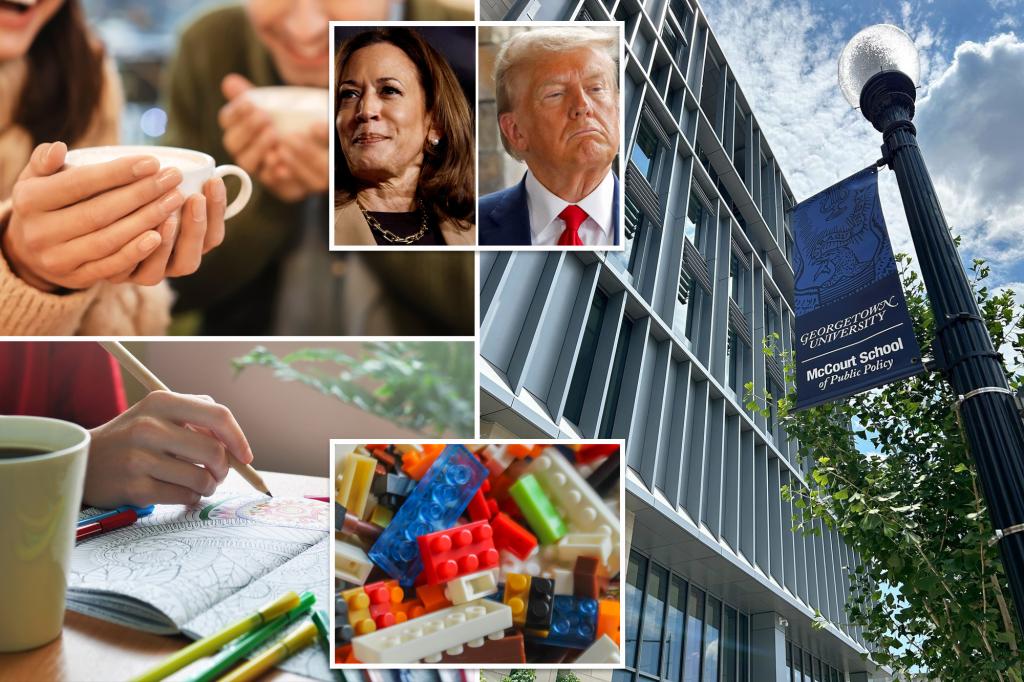Students at Georgetown University’s McCourt School of Public Policy are being offered a “self-care suite” on Election Day to escape from potentially uncomfortable political discourse. The suite includes activities such as mindfulness activities, snacks, Legos, coloring books, and hot cocoa, providing students with a comfortable space away from heated debate. This move comes as a response to the stressful political climate and aims to cater to students who may find political discourse overwhelming.
At the University of Puget Sound in Tacoma, students are also being provided with safe spaces to seek refuge during the election period. The campus is offering cupcakes, a walkable labyrinth with calming lighting and music, as well as arts and crafts activities like beading and painting. Additionally, students have the opportunity to participate in a “Pause for Paws” event where they can cuddle with furry friends and enjoy hot chocolate. A post-election processing space is also available for students to create collages, journal, and enjoy comfort food.
The coddling of students during the election period is not exclusive to Georgetown and the University of Puget Sound. The Ethical Culture Fieldston School in New York City is allowing students who are “emotionally distressed” over the election to skip school. This decision has been met with criticism, with comedian Jerry Seinfeld questioning the message it sends to young people. Seinfeld expressed disbelief at the notion of encouraging students to avoid challenging situations and the impact it may have on their ability to handle adversity in the future.
The trend towards creating safe spaces for students during politically charged times highlights the perceived need to protect students from discomfort and stress. Critics argue that shielding students from opposing viewpoints may hinder their ability to engage in critical thinking and develop resilience. The practice of offering self-care suites and retreats with activities like arts and crafts and pet therapy raises questions about the role of higher education in shaping students’ ability to navigate complex and challenging situations.
The decision to provide students with safe spaces during the election period reflects a larger cultural shift towards prioritizing emotional well-being and self-care. While the intention behind creating these spaces is to support students in managing stress and anxiety, critics argue that it may reinforce a culture of avoidance and limit students’ exposure to diverse perspectives. The debate over the coddling of students in response to political discourse raises important questions about the balance between protecting emotional well-being and promoting intellectual growth.
In conclusion, the creation of self-care suites and safe spaces for students during politically charged times like Election Day reflects a broader trend towards prioritizing emotional well-being in educational settings. While these initiatives aim to support students in managing stress and anxiety, they have also sparked debate over the impact of shielding students from discomfort and opposing viewpoints. As universities continue to navigate these issues, it is important to consider the balance between providing support for students’ emotional well-being and encouraging critical thinking and resilience in the face of challenging situations.














